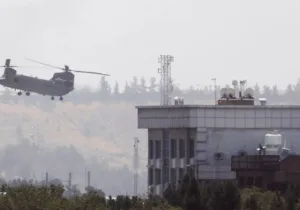Over the past several months, the media has reported a number of high profile cases of people (Paul Manafort, Lt. Gen. Michael Flynn) and organizations (RT, formerly Russia Today) failing to register as “foreign agents.” Here is what you should know about foreign agents and the American laws that regulate their activities:
1. Under American law, a foreign agent is defined as any person who acts as an agent of a foreign principal (either a government, corporation, organization, or person) who engages within the United States in particular activities on behalf of a foreign principal. Such activities include political lobbying and consulting, publicity and public relations counsel, collecting or dispensing loans, contributions, or money.
2. The common misperception of a foreign agent is a person who engages in espionage or sabotage on behalf of a foreign government. Foreign agents who engage in such clandestine activities are often referred to as covert foreign agents. When operating in the U.S., they are required by law to register with the U.S. Attorney General.
3. The Foreign Agents Registration Act (FARA) is a law passed in 1938 that requires foreign agents to make periodic public disclosure of their relationship with the foreign principal, as well as activities, receipts, and disbursements in support of those activities. FARA was Congress’ response to the large number of German propaganda agents in the pre-WWII U.S.
4. The purpose of FARA is to ensure that the U.S. government and the people of the United States are “informed of the source of information (propaganda) and the identity of persons attempting to influence U.S. public opinion, policy, and laws.”
5. FARA requires foreign agents to register with the Department of Justice and file forms outlining its agreements with, income from, and expenditures on behalf of the foreign principal. These forms are public records and must be supplemented every six months. FARA also requires that “informational materials” be labeled with a conspicuous statement that the information is being disseminated by the agents on behalf of the foreign principal. The foreign agent must provide copies of such materials to the Attorney General.
6. The administration and enforcement of the FARA are assigned to the FARA Registration Unit of the Counterintelligence and Export Control Section (CES) in the National Security Division (NSD) of the Department of Justice. The FARA Unit is comprised of one Unit Chief, who is also an attorney; two staff attorneys; one Supervisory Program Manager; one Intelligence Research Specialist; one Program Specialist; and two Case Management Specialists.
7. FARA requires the Attorney General to report every six months to the Congress concerning the administration of the Act. In the latest published report (December 2016), the Department of Justice had a total of 387 active registrations, representing 542 foreign principals
8. In addition to FARA, several other statutes regulate the activities of foreign agents in the U.S. The Lobbying Disclosure Act of 1995 (LDA), an act administered by Congress, removed from FARA a class of agents who are engaged in lobbying activities and who register under the LDA. Another law, 18 U.S.C. § 951, provides criminal penalties for anyone other than a diplomat who operates as an agent of a foreign government without first notifying the Attorney General, unless the agent is engaged in legal commercial transaction. Also, 18 U.S.C. § 2386 requires registration by certain organizations that engage in political or civilian military activity, are under foreign control, or have as their purpose the overthrow of the government by force. Finally, 50 U.S.C. § 851 requires registration of persons who have knowledge of or have received instruction or assignment in espionage, counterespionage, or sabotage service or tactics of a foreign country or political party.
9. The Department of Justice recently returned to FARA’s original focus on foreign propaganda by requiring two Russian media outlets—RT and Sputnik—to register as foreign agents. In September 2017, the Department of Justice sent a letter to RT, pressing it to register under FARA. Under the law, RT and Sputnik may be required to carry a disclaimer on their websites and in their broadcasts seen within the U.S. labeling their coverage as being distributed on behalf of a foreign client—the Russian government.
10. FARA has rarely been enforced. Over the past 50 years, between 1966 and 2015, the Department of Justice has only brought seven criminal FARA cases—one resulted in a conviction at trial for conspiracy to violate FARA and other statutes; two led to guilty pleas for violating FARA; two others led to guilty pleas for non-FARA charges; the remaining two cases were dismissed. (The NSD does not track the number of FARA cases declined for prosecution, or the reasons for such declinations.)
—
Joe Carter is an adjunct professor of journalism at Patrick Henry College, an editor for several organizations, and the author of the NIV Lifehacks Bible.
Photo Credit: National Security Advisor Michael Flynn returned a salute upon his arrival at MacDill, Air Force Base, Florida on Feb. 6, 2017. Flynn was in MacDill to join President Trump, who was visiting senior military leaders and service members of Central Command and Special Operations Command. DoD photo by D. Myles Cullen/Released.






